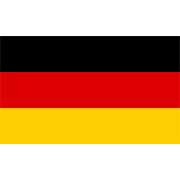Fiscal subject related
The following are examples of economically active people who should have the W-IdNr:
- Natural persons with economic activity (self-employed, freelancers, sole traders, retailers)
- Legal persons
- Associations of persons
- Entrepreneurs
- Employers
This number will be assigned in addition to their unique tax identification numbers. It was created to make identification easier between private areas and operational areas, and it will replace the sales tax identification number, which is no longer required. Each economically active person will therefore have one identification number for all types of taxes.
The Federal Central Tax Office, or BZSt, in Bonn is responsible for issuing the Wirtschafts-ID Nummer. The BZSt will issue the Wirtschafts-ID Nummer at the request of the responsible tax authority and will notify the taxpayer of this without the need for an application on their end.
It should be noted that the Wirtschafts-ID Nummer has not yet been issued. When it is ready to launch, more information will be available for taxpayers to get informed with enough time to prepare.
Other news from Germany
Germany: Court Confirms Tax Authorities Can Request Tax-Relevant Emails During Audits
 Germany
Author: Ivana Picajkić
Germany
Author: Ivana Picajkić
German tax authorities are increasingly requesting tax-relevant emails during audits, and a 2025 Federal Fiscal Court ruling confirmed that such emails must be retained and disclosed when they contain relevant commercial or tax information. Read more
Subscribe to get access to the latest news, documents, webinars and educations.
Already subscriber? Login


Germany and France Update their Common E-Invoicing Standard
Germany and France will jointly update their hybrid e-invoice formats ZUGFeRD and Factur-X on 15 January 2026 to align with EN 16931 and support their upcoming B2B e-invoicing mandates. The new version expands technical capabilities, improves interoperability, and ensures full compatibility between both formats as Europe prepares for unified digital reporting under ViDA Germany and France have ann... Read more



Germany Lowers VAT on Food in Restaurants to 7% from 2026
 Germany
Author: Ivana Picajkić
Germany
Author: Ivana Picajkić
The German government has approved the Tax Amendment Act 2025. Starting January 1, 2026, the VAT rate for all food served in restaurants will be reduced to 7%. This change will support restaurants, cafés, bakeries, butchers, and catering businesses What changes on January 1, 2026? Food eaten on-site in restaurants will drop from 19% to 7% VAT. This creates a uniform 7% VAT rate for: din... Read more



German 2025-2028 TSE Replacement: Steps for POS Providers and Retailers
 Germany
Author: Ivana Picajkić
Germany
Author: Ivana Picajkić
Germany’s TSE replacement will unfold in multi-year waves from 2025 to 2028, because each hardware TSE expires five years after activation rather than on a single nationwide date. This long replacement cycle forces manufacturers, integrators, and retailers to plan strategically—balancing hardware swaps, cloud-TSE migrations, and clear communication to manage staggered deadlines and complex install... Read more



New document was uploaded: S4FiscalBackoffice Patch
S4F backoffice patch is intended for users who have already installed S4F backoffice and are intended to update existing installations to latest version. To do so apply only patches that are marked with version number that is newer than your currently installed instance of backoffice. Please make sure to install all available patches sequentially (without skipping). This package contains instruction, release notes, changelog and software packages required for deployment of this software component. Read more
Subscribe to get access to the latest news, documents, webinars and educations.
Already subscriber? Login


New document was uploaded: S4FiscalBackoffice Patch
S4F backoffice patch is intended for users who have already installed S4F backoffice and are intended to update existing installations to latest version. To do so apply only patches that are marked with version number that is newer than your currently installed instance of backoffice. Please make sure to install all available patches sequentially (without skipping). This package contains instruction, release notes, changelog and software packages required for deployment of this software component. Read more
Subscribe to get access to the latest news, documents, webinars and educations.
Already subscriber? Login


Germany: 2025 Reporting Rules for Electronic Recording Systems
 Germany
Author: Ivana Picajkić
Germany
Author: Ivana Picajkić
Starting in 2025, companies must electronically report all electronic recording systems at each business location to the tax office. Required data includes company details, system types, software versions, serial numbers, and acquisition dates, with automation options to minimize errors. An internal checklist ensures compliance and proper documentation. From 2025, all companies must report their e... Read more


